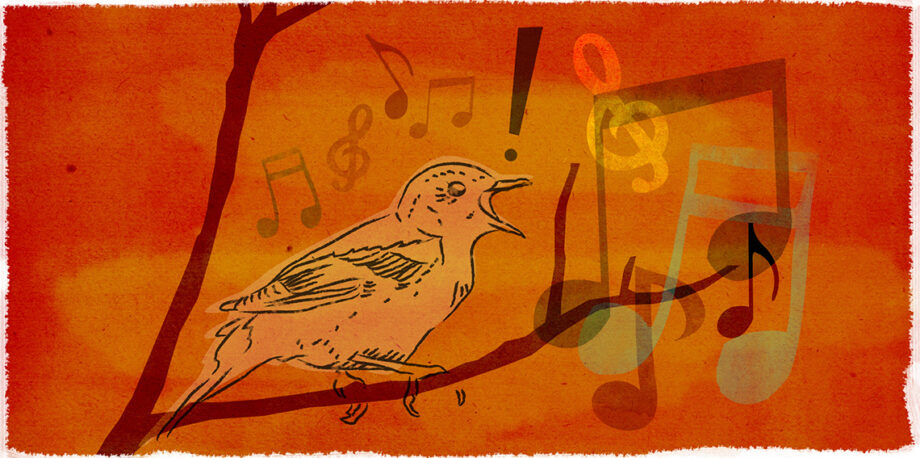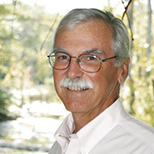December 24, 2014 — Many birders enjoy playing an imaginary game with one another: “Blindfold me and place me anywhere in the world — I bet I can identify where I am, as long as you let me hear the birds.” This phenomenon exists because most birds are finely tuned to a narrow place on Earth. Every species has developed traits that permit it to cope with the challenges and capitalize on the opportunities of habitat in every biome, whether it’s the windswept Arctic tundra, the Antarctic ice sheets, the fog-shrouded mountaintops or the world’s driest scrubs. From giant ostriches to tiny bee hummingbirds, their ability to populate land and sea the world over is a testament to nearly 200 million years of evolutionary adaptation since diverging from the dinosaurs.
But these remarkable specializations have a huge down side from the birds’ point of view. When the rules of a place begin to change, the survival and reproductive success of its birds decline. If the changes persist, one by one, birds may disappear altogether. The most specialized species are the first to go — the “indicator species” that allow us to measure an ecosystem’s overall health.
More than any other group of organisms, birds stimulate both sides of our brain with their bewildering diversities in song, color, display, flight style and migratory stamina. On the one hand, because they are accessible models of basic biological principles, they are subjects of our drive to deduce the laws of nature through science. On the other hand, they are featured in centuries of humanist art and poetry because they evoke our emotions, connecting us spiritually with nature. Both of these calls on our consciousness are vital in their roles as beacons of environmental health.
As it turns out, bird populations are not just measures of their own health; they also signal changes that directly affect human beings.
For millions of years, habitats have shifted naturally as landmasses move and climates fluctuate. However, never in Earth’s history have they changed as rapidly as they are changing today. The consequences on bird populations are devastating. Worldwide, BirdLife International estimates that one-eighth of all bird species are threatened, reflecting the health of their habitats. These threatened species continue to sing, but their songs aren’t poetic or musical — they are alarm songs.
These declining bird populations are sending us big, flashing warning signs about the quality of our own lives. In the United States, one distinctive community of specialists, including the bobolink, eastern and western meadowlark, grasshopper sparrow and upland sandpiper, has been sending us winged warnings for the past three decades. As croplands across the middle of North America convert from family farms into horizon-to-horizon crops boosted by pesticides and fertilizers, birds that once sang from fence posts and utility poles are becoming scarce or disappearing altogether. Meanwhile, drinking water is contaminated with farm runoff and barges get stuck in sediment-filled rivers because grasslands no longer intercept silt-laden runoff. As it turns out, bird populations are not just measures of their own health; they also signal changes that directly affect human beings.
The good news is that when we listen to the birds, when we notice their diminished presence and when we change our behavior even slightly to accommodate their needs, they respond spectacularly, as documented in the 2014 State of the Birds Report. In the United States, many endangered species that were once reduced to hundreds or even dozens of individuals are now thriving and exponentially expanding. The bald eagle, peregrine falcon and brown pelican, all of which declined in part because the pesticide DDT thinned their eggshells, have been removed altogether from the endangered species list. Most North American waterfowl today occur in numbers larger than anytime in the past century because wetlands have been protected and hunting seasons have been managed. Success stories such as these attest to the resiliency of birds, provided that the conditions they require are understood, restored and protected.
Will birds continue to connect our hearts and our minds with nature long into the future?
Our global goal must be to move toward a condition in which human cultures flourish side by side with intact and functioning natural systems. In such a world, we could again hear the song of the nightingale — so admired by Homer, Chaucer, Shakespeare and T.S. Eliot — without fearing for its future. Today, nightingales are steadily disappearing from the countryside all across northern Europe, and their songs are becoming louder and harsher to overcome city noise. If we want a future that still features the sweet sounds of nightingales and meadowlarks, then we must focus on protecting habitat patches large and small, and on managing and restoring uncontaminated, functioning, interconnected ecological systems at regional and continental scales. Climate change is turning up the heat of urgency for this global commitment.
Will birds continue to connect our hearts and our minds with nature long into the future? Only with our attention, planning and commitment. If we want tomorrow’s human generations to incorporate the songs of birds into music and verse, then we must first hear — then heed — what today’s nightingales are telling us. ![]()
This piece originally appeared in Environmental Health News as part of its Winged Warnings series.
Editor’s note: The views expressed here are those of the author and not necessarily of Ensia. We present them to further discussion around important topics. We encourage you to respond with a comment below, following our commenting guidelines, which can be found here. In addition, you might consider submitting a Voices piece of your own. See Ensia’s “Contact” page for submission guidelines.
Ensia shares solutions-focused stories free of charge through our online magazine and partner media. That means audiences around the world have ready access to stories that can — and do — help them shape a better future. If you value our work, please show your support today.
Yes, I'll support Ensia!
